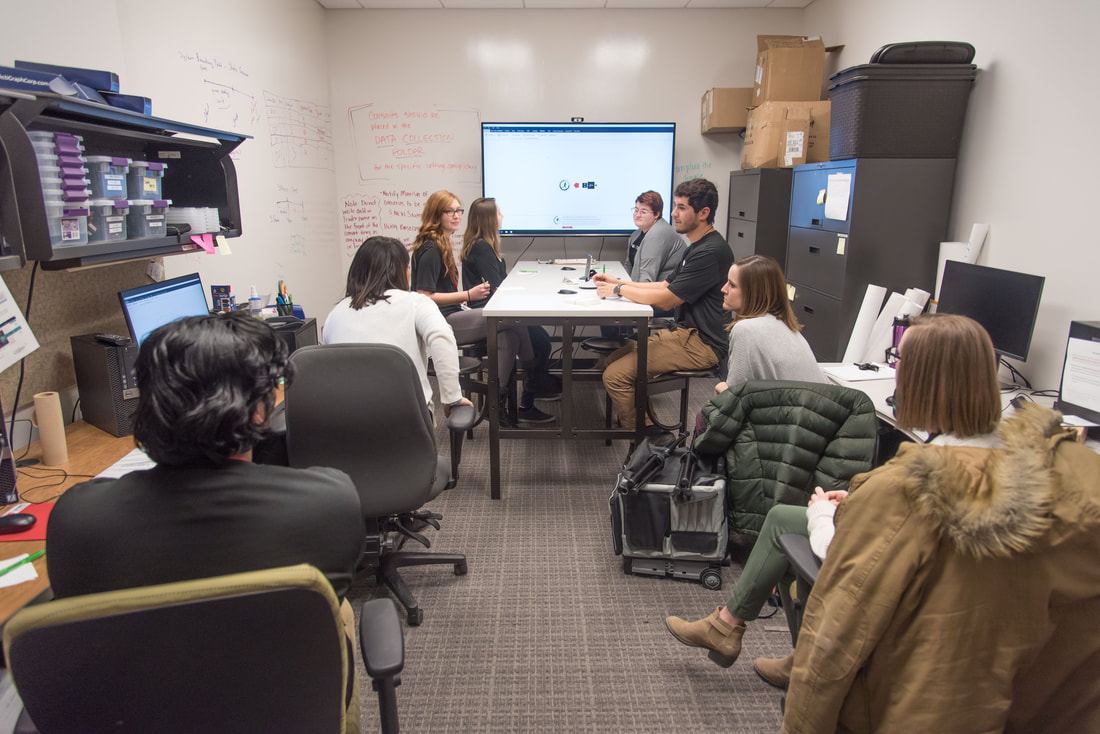Our Work
|
Communities, Social Ecological Systems, Diffusions of Innovations, Behavioral Decisions ...
These are some of the key words that the describe the processes of human interaction that we research. The Dzewaltowski Lab focuses on community systems and their practices, how communities create the conditions in which children grow, learn, and play that determine health promoting behaviors, and methods to facilitate and evaluate the diffusion of evidence-based ideas into communities for increase opportunity and population health improvement and the prevention of cancer and other chronic conditions
The Community Wellness Landscape - Where Children and Families Live, Learn, Work, and Play Matters
The Dzewaltowski Lab coined the term "community wellness landscape," which is a mosaic of diverse places across a community providing the conditions for children and family development, health behavior, and the prevention of cancer and other chronic diseases. His laboratory studies contribute to generalizable knowledge on methods to promote the integration of research evidence across the whole-of-communities to implement practices that improve population health.
Communities across the U.S. and internationally are working to improve population health to increase child health and development and to decrease health care costs. There is evidence that where children and families live influence their health and development. Eight percent of 2 to 4 year olds living in low income families in Utah are obese while 20 percent living in Virginia are obese. In Nebraska, where our laboratory is located, 16.9 percent of low-income family young children are obese. We are working to identify why where people live matters for preventive health behaviors, such as physical activity and nutrition, and how to help communities design and evaluate locally led systeminnovations for community population health improvement for all children and families. An omnibus challenge to achieve population health and wellness improvement, therefore, is to facilitate change in conditions across in the numerous places where people live, learn, work, and play in a geographic area. How do we do what we do?
We do this by investigating these problems (such as measuring child physical activity or obesity) and directly observing group practices of community places (such as clinics, child care centers, schools, after school programs, clubs, and youth sport) that determine impact of new evidence-based ideas on implemented practices and outcomes.
For the scientist and evaluation community, we offer technical support for direct audio, video and in-person observation of implemented practices (including methods and data processing), social ecological system theory-based hypothesis generation, implementation science research design, and evaluation, analysis and reporting methods (e.g,, mixed model analysis, RE-AIM Framework). For communities and organizations, we offer technical assistance through workshops and coaching on methods to create and evaluate community health coalitions and social networks (we call a community hub), community data systems, and community action based on evidence-based practices to improve community conditions for children and families to promote healthy behavior, which leads to improved population health and cancer prevention. |
Population Science
Population science is about describing, predicting, and developing strategies to influence the outcomes of populations. A population approach can be contrasted with an individual approach. Where an individual approach targets individual characteristics that determine individual outcomes, our population approach targets community conditions that impact the outcomes of community populations. Community population health is driven by the social determinants of health, which the World Health Organization defines as the conditions under which people are born, grow, live, work and age. Our lab focuses on population health behavior outcomes important for child and family development and prevention of cancer and other chronic diseases in Great Plains rural communities and beyond, and the intent is for this work to generalizable knowledge for all.
Population Health, Child Development, Physical Activity and Nutrition, Obesity Prevention, Cancer Prevention ...These are some of the key words that describe important problems. The Dzewaltowski Lab provides information on how the processes of human interaction determine these problems. We also describe ways communities, organization, and individuals can address these problems by targeting community and organization development processes systematically through locally lead efforts.
|

